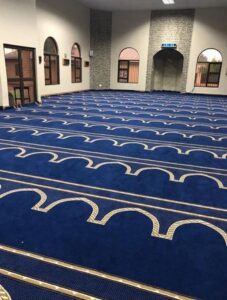The “Best Thing Since Sliced Bread”
![]()
There is a widespread resistance to confronting the flaws in our religious practices. Pointing out these flaws—whether it’s regarding the permissibility of certain actions, the importance of adhering to the teachings of Islam, or encouraging others to live by the Qur’an and Sunnah—is often met with harsh criticism. Those who call for reform, seek to rid society of immorality, or challenge accepted norms are labeled as “judgmental” or “self-righteous.” The irony is that the ones pointing out the flaws in our practice are often those who are most concerned about upholding the integrity of our faith.
When we see Muslims neglecting key aspects of our Deen, such as wearing hijab or avoiding sinful pastimes like watching the television, it’s not judgment; it’s a call to action. Yet, our community has grown so accustomed to indulging in these sins that even a gentle reminder is met with resistance. It’s as though we’ve become numb to the truth, accepting sin as the norm and dismissing those who stand firm in calling for adherence to the Shariah.
The “Best Thing Since Sliced Bread”
This phrase that people toss around—“the best thing since sliced bread.” We all know it, and some of us even use it, but let’s break it down. The best thing since sliced bread isn’t just a catchy phrase for marketing campaigns. It implies that the thing being referred to is the most excellent, the most desirable, or the most impressive thing since the invention of sliced bread. Now, if we’re willing to splurge on the best gadgets, the best cars, and the best food, then why, just why, would we not demand that same level of excellence when it comes to our faith?
The depletion of key Islamic values such as Taqwa (God-consciousness) and Tahaarat (purity) in today’s society is a reflection of how easily we’ve let go of striving for excellence in our faith. Whether among the Ulama (scholars), Buzrugs (saints), Zaahids (ascetics), or Aabids (worshippers), there seems to be a general disregard for the importance of caution, sincerity, and purity in our religious practices. This lack of attention to the finer details of Deen has led to the decline in the barakah (blessing) in both our spiritual and worldly endeavors, creating a ripple effect of misfortune and chaos.
Taqwa and Tahaarat have decreased in every group whether it be the Ulama or the Buzrugs, whether Zaahid or Aabid. There is a great dearth of these attributes nowadays. There is no longer Ihtiyaat (caution). Just look at the irregularities of Ulama in the matter of funds, barring a few. Similarly, those who claim to be durwaish and sufi. They utilize amaliyaat to subjugate the hearts of people, and devour the wealth of people. This is just like a bandit who snatches the wealth of people by robbery and banditry.Since there is a depletion of Taqwa and Tahaarat nowadays, there is no barkat in either Deeni or worldly projects. This depletion has culminated in the increase of nahoosat (misfortune), hence goodness and barkat have terminated.
The truth hurts but it has a temporary sting. Yet it’s easier to accept swimming in ignorance and drowning in falsehood, despite its painful end. Anyone who points out our collective flaws suffers immediate castigation. They are scolded for being “judgemental” or committing “Gheebah”. These are customary weapons of choice for those who can’t bear the truth, don’t like truth and want to change truth (Haqq – the truth of Allah’s Deen). Highlighting our flagrant disregard for Shariah and encouraging the abandonment of Haraam is not passing judgement. A judgement is labelling someone ‘x’ or ‘y’ based on their unlawful actions.
We are so content with a little bit of Deen that we cast slurs at someone carrying out Amr Bil Ma’roof Nahyi Anil Munkar – commanding virtue and prohibiting vice.
No longer do nameless fingers pull the trigger and pass senseless conclusions. We’ve become smug in our open acceptance of immorality to the extent that speaking out against it is met with ridiculous sentiments of “you’re too harsh”, “she’s self righteous” and wait for it, “they’re just asserting a superior sense of being Muslim“. We remain mute, in the depths of sleep, to each other’s rampant indulgence in sin and the insolent yet confident propagation of falsehood (Baatil). When you encourage Hijab and point out the extent to which we disregard it then you’re focusing on women’s dress too much. That’s the degree of our respect for it. If you encourage staying away from useless pass times, such as watching Television, you’re dogmatic and irrational.
That’s our understanding of spending our time wisely in the worship of Allah.
When you encourage reformation as the better answer to help ease the suffering of Muslims, then you’re judgemental. That is the height of our knowledge of Deen. If you warn against that which is Haraam and doubtful being accepted under the banner “Halaal Friendly”, then you are admonished for your “tone”, whereas the act of accepting Haraam should be despised. That’s the level of our love and respect for the decree of Allah SWT.
Do we dislike the Deen so much that we attack those who speak up for it. Does the Deen of Allah SWT mean so little to us that we can’t handle the truth. Have we become deaf to the encouragement of living by the Quraan and Sunnah that we judge those who speak for it, labelling them “sanctimonious”?
Hadhrat Maulana Ashraf Ali Thanvi رحمه الله – Therefore, the greatest amount of pre-consideration and precaution must be shown when making choices that relate to Deen, as the repercussions and consequences of these choices will remain long beyond the grave
The Difficulty of Truth
“Better to live with a difficult reality than be sedated in a fiction of tranquil fantasy.”
Accepting truth can be discomforting, as it often requires confronting our own shortcomings or challenging the status quo. This reluctance is understandable but problematic. We risk sinking into a complacent acceptance of falsehoods, which undermines our growth and connection with Allah.
The reality may be difficult, but it is far more beneficial to confront it head-on than to live in the sedative comfort of falsehood. The fiction of tranquility is a dangerous path, for it leads us away from the true path of righteousness. In this life, comfort can be deceptive—it may lull us into complacency, robbing us of the opportunity to grow in our faith.



